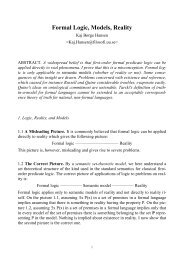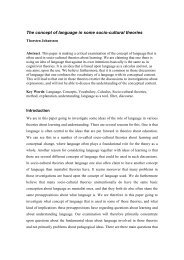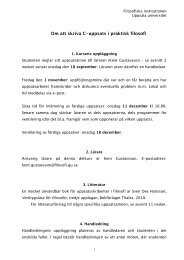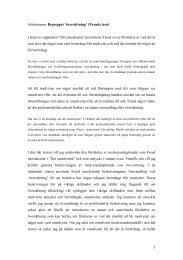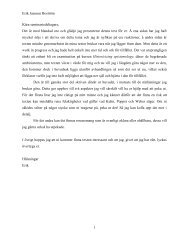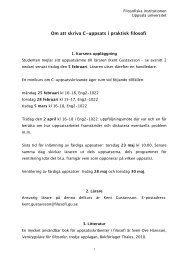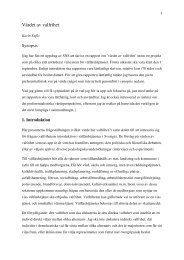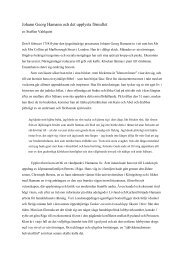1 Dewey, Wittgenstein, and Linguistic Instrumentalism My paper ...
1 Dewey, Wittgenstein, and Linguistic Instrumentalism My paper ...
1 Dewey, Wittgenstein, and Linguistic Instrumentalism My paper ...
Create successful ePaper yourself
Turn your PDF publications into a flip-book with our unique Google optimized e-Paper software.
empirical research supporting this “theory” of language (see Tomasello 1999, 2008a, <strong>and</strong><br />
2008b). 12 We also now know that having mirror neurons is immensely helpful in taking<br />
the attitude of the other for organisms such as ourselves <strong>and</strong> many other species. 13<br />
While decrying scientism <strong>and</strong> the pretense of even good science to completing the quest<br />
for certainty, <strong>Dewey</strong> nonetheless thought philosophy participated in both literature <strong>and</strong><br />
empirical science. 14 Meanwhile, <strong>Wittgenstein</strong> insists that philosophy is separate from<br />
science (see Tractatus § 4.111 <strong>and</strong> PI § 109).<br />
Many consider <strong>Wittgenstein</strong>’s remarks on private language, “form of life,” <strong>and</strong><br />
grammar, or conventional normative rules-governed linguistic activity, as the most<br />
prominent notions in the Investigations. They are all intimately connected. Let us<br />
compare some remarkably resonate passages in <strong>Dewey</strong> on similar themes. We begin<br />
with the argument against private language. For <strong>Wittgenstein</strong>, a private-language, in<br />
which “individual words . . . are to refer to what can only be known to the person<br />
speaking; to his immediate private sensations” is not a genuine, meaningful, rule-<br />
governed language (PI § 243). The signs in language can only function when there is a<br />
possibility of judging the correctness of their use; so, “the use of [a] word st<strong>and</strong>s in need<br />
of a justification which everybody underst<strong>and</strong>s” (PI § 261). Compare <strong>Wittgenstein</strong> to<br />
<strong>Dewey</strong>: “Primarily meaning is intent <strong>and</strong> intent is not personal in a private <strong>and</strong><br />
exclusive sense” (LW 1: 142). <strong>Dewey</strong> finds that if “we had not talked with others <strong>and</strong><br />
they with us, we should never talk to <strong>and</strong> with ourselves” (135). Indeed, for <strong>Dewey</strong>, to<br />
have a mind at all is to have meaning: “Through speech a person dramatically identifies<br />
himself with potential acts <strong>and</strong> deeds; he plays many roles, not in successive stages of<br />
12



